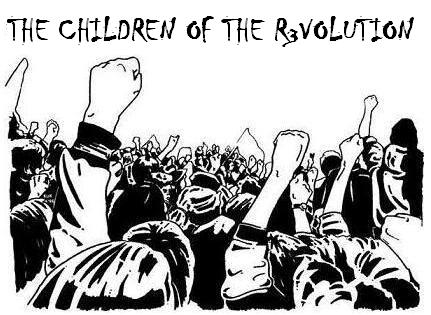I was greeted by this saddening news this morning: the US jobless rate rose to 7.2% at the close of 2008. According to the article, this is the highest jobless rate since 1993. The article, for the sole purpose of sensationalism (all too common in today’s media), also cites that number of jobs lost as the largest in the post-World War II era; this tidbit is meaningless as economies grow and shrink over time, as do populations. The percentage is the real figure of concern, and by any measure it is troubling.
What’s even more troubling is the thought of the government repealing the Bush tax cuts on the wealthiest tax bracket (which amounts to a tax increase regardless of the soft language used by its proponents) during this recession. David Axelrod, President-elect Obama’s senior advisor, has already promised that it will happen. Mr. Obama has tried to suggest that he may favor a delay of eliminating these tax cuts until their scheduled lapse on January 1, 2011. In either case, the administration has made the argument that they will go, sooner or later. And when they do, countless jobs will go with them.
If what Mr. Obama has said about this economy getting worse before it gets better is true, then it may be well near the end of 2009 or beginning of 2010 before we start to see a significant turnaround. If Mr. Obama’s stimulus package is passed, however, we can count on that recovery being stalled even further, as even some Democrats are beginning to recognize (see here). While it may be a fashionable notion for Congress to spend us out of this recession, the fact remains that federal money has to come from the private sector, either now or later, in the form of taxes, debt or the issuance of fiat currency. Furthermore, the assumption that Congress is in any position to allocate that spending to the right places is the supreme logical fallacy; Congress will spend based upon lobbying, political expediency, and lastly economic advice (sound or otherwise). The outcome will be a repeat of the TARP fiasco, with Americans being squeezed even harder by government incompetence. The best place for any stimulus money is in the hands of the American taxpayer in the form of lower tax rates across the board (the government should have to learn to live with less during economic hard times, not the people).
So let’s assume that Mr. Obama’s stimulus is passed, and that the economic turnaround occurs, despite the president’s misguided efforts, in January of 2010 (for the sake nice, round numbers; I’m being charitable). What happens when it comes time to pay the piper several months later and the Bush tax cuts lapse? And bear in mind, the Obama administration will have to recover some of the money spent on its stimulus programs, which dwarf expected revenue from increased taxes on the wealthy, as they will not want to enter the re-election season with the largest federal deficit in American history; they may not be able to wait until 2011 to start collecting on the rich. As Mr. Obama is fond of saying when evading difficult questions, there will be some tough decisions to make. I leave the results of those decisions unsaid, but point only to the decisions themselves: tax rates increased on the wealthiest tax bracket (business owners) above and beyond the pre-Bush tax cut levels, and perhaps an increase in taxes on middle class Americans as well.
What’s even more troubling is the thought of the government repealing the Bush tax cuts on the wealthiest tax bracket (which amounts to a tax increase regardless of the soft language used by its proponents) during this recession. David Axelrod, President-elect Obama’s senior advisor, has already promised that it will happen. Mr. Obama has tried to suggest that he may favor a delay of eliminating these tax cuts until their scheduled lapse on January 1, 2011. In either case, the administration has made the argument that they will go, sooner or later. And when they do, countless jobs will go with them.
If what Mr. Obama has said about this economy getting worse before it gets better is true, then it may be well near the end of 2009 or beginning of 2010 before we start to see a significant turnaround. If Mr. Obama’s stimulus package is passed, however, we can count on that recovery being stalled even further, as even some Democrats are beginning to recognize (see here). While it may be a fashionable notion for Congress to spend us out of this recession, the fact remains that federal money has to come from the private sector, either now or later, in the form of taxes, debt or the issuance of fiat currency. Furthermore, the assumption that Congress is in any position to allocate that spending to the right places is the supreme logical fallacy; Congress will spend based upon lobbying, political expediency, and lastly economic advice (sound or otherwise). The outcome will be a repeat of the TARP fiasco, with Americans being squeezed even harder by government incompetence. The best place for any stimulus money is in the hands of the American taxpayer in the form of lower tax rates across the board (the government should have to learn to live with less during economic hard times, not the people).
So let’s assume that Mr. Obama’s stimulus is passed, and that the economic turnaround occurs, despite the president’s misguided efforts, in January of 2010 (for the sake nice, round numbers; I’m being charitable). What happens when it comes time to pay the piper several months later and the Bush tax cuts lapse? And bear in mind, the Obama administration will have to recover some of the money spent on its stimulus programs, which dwarf expected revenue from increased taxes on the wealthy, as they will not want to enter the re-election season with the largest federal deficit in American history; they may not be able to wait until 2011 to start collecting on the rich. As Mr. Obama is fond of saying when evading difficult questions, there will be some tough decisions to make. I leave the results of those decisions unsaid, but point only to the decisions themselves: tax rates increased on the wealthiest tax bracket (business owners) above and beyond the pre-Bush tax cut levels, and perhaps an increase in taxes on middle class Americans as well.
We’re currently watching the makings of a train wreck fueled by good intentions and political posturing. The government cannot avoid the inevitable collision of increased spending and current tax rates forever. The ensuing wreck may ensure that our economic recovery is left up to the next president to solve.








1 comment:
More on this subject and the disaster that Washington's current economic exit strategy will lead to from Ron Paul.
Post a Comment